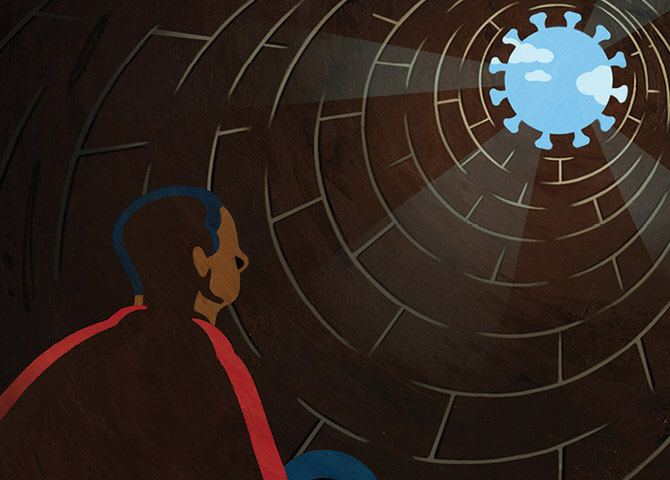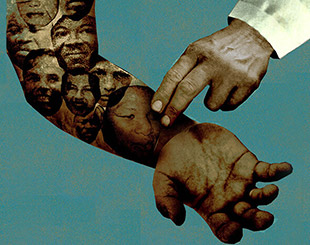By Genevieve Graaf,
Assistant Professor of Social Work
Under the stress of the COVID-19 pandemic, existing structural inequalities in the United States have led to compounding adversities for African Americans. African Americans’ COVID-19 vulnerability is rooted in disadvantaged social and economic positions, many originating in racism’s historical and contemporary impacts.
Underlying disease rate disparities make African Americans more vulnerable to becoming sick from COVID-19 and suffering more serious illness and greater mortality. Increased risk is also related to African Americans’ lower rates of health coverage, having decreased access to health care, and greater likelihood of living where there is less COVID testing. As such, African Americans have fewer opportunities for diagnosis and early treatment.
The COVID-19 recession also affects African Americans more negatively than whites. With smaller personal and household wealth reserves to absorb the economic impacts of illness or job loss, more African Americans may slip into poverty and may remain there for a longer period of time. African Americans’ occupations provide them with lower wages, slower wage growth, and limited job security when compared to whites. Historically, African Americans are more likely to experience unemployment and financial hardship during economic recessions and are slower to rebound than white households. Thus, recovery from the COVID-19 recession—in whatever form it might take—will likely see a slower economic response for African Americans due to their greater economic fragility. Further, the effects of disadvantaged and lost education for African American youth who are less likely to receive the learning supports they need to succeed during school closures may contribute to disparities in economic advancement and recovery in decades to come.
Both in this generation and the next, COVID-19 is likely to reinforce or increase African Americans’ poverty—a strong predictor of poor health. In this manner, COVID-19 stimulates structural barriers underlying health disparities, triggering a feedback loop by which, even as African Americans’ poverty causes poor health, African Americans’ poor health will cause more African American poverty. As such, this pandemic presents public policy and investment choices that can reduce, reinforce, or even exacerbate disparities going forward.
About the Author

Having spent years in community practice settings as a social worker, Dr. Graaf’s research focuses on understanding and accounting for geographic variation and contextual influences in state and local policy and its impact on insurance and health care disparities based on income, race, and ethnicity. Graaf collaborated with her mentor, Lonnie Snowden at University of California’s School of Public Health, to outline the risks COVID-19 poses to current and future African Americans’ health disparities and highlight policy and practice interventions that may address existing vulnerabilities and prevent expansion of current health disparities.



